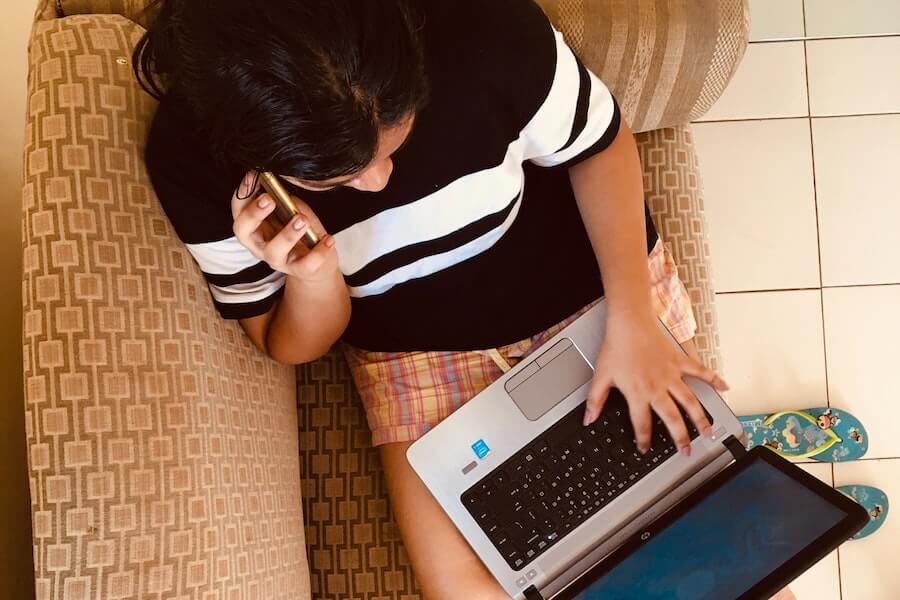How to manage shared living expenses

Managing your own expenses can be hard, but it’s even more of a challenge trying to manage shared living expenses with other people. And if you’re living with flatmates, a partner, friends or family, shared expenses are inevitable.
However, with a bit of planning, lots of open communication and the help of some dedicated accounts and apps, managing shared living expenses can be quite easy to do.

Topics in this article:
Five steps for effectively managing shared living expenses:
1. Be super clear on what expenses are shared, and what isn’t.
The first step to managing your shared expenses is to work out what costs you’ll actually be sharing. When you first move in with roommates or a partner, one of the housemate ground rules you need to discuss is what expenses will be split up and what will be considered personal expenses.
For example, you may decide to split up your monthly home internet costs and your quarterly electricity bill. But you might decide to keep your food and household items like shampoo and toothpaste as personal expenses.
As a side benefit, this is a good time to make it clear which things are for your own personal use and which you’re happy to share (so you don’t have to worry about flatmates helping themselves to your food in the fridge!).
2. Split your shared expenses fairly.
Once you’ve decided which expenses are shared, you also need to discuss the best way to split these that’s fair for everyone. Splitting these costs right down the middle might not be the fairest way.
Let’s take the rent as an example, as it’s likely the biggest expense you’ll share. If there’s three of you living in the house, you might think the obvious solution is to split the cost of the rent by three. However, if one of your flatmates has a bigger room with a private ensuite, you might decide that it’s fair for them to pay a little bit more of the rent.
The same goes for your electricity bill. Let’s say your housemate works from home full-time, using the lighting, heater or air conditioner all day, and you’re out of the house most of the time. You might decide that it’s fair if they pay a little extra for the electricity bill.
3. Set up reminders or automatic transfers for ongoing bills.
Even though you might be splitting the rent between several people, your landlord will usually only accept payment in one lump sum.
If your roommate is responsible for paying the rent in full by the end of the month, set yourself a calendar reminder to transfer your share of the rent a few days before the end of the month. Another tip to ensure you always pay on time is to set up an automatic monthly transfer, which you can do in your mobile banking app.
If you’re the one responsible for paying the rent or bills, you can use apps like Beem It to request money from your roommates if they’re late transferring you their share. Think of it as a digital tap on the shoulder to say ‘Hey, can you please send me your share of the rent?’, in the form of a push notification to their phone. No awkward conversation required!
There are heaps of apps that are designed to make life a little easier when living with flatmates, like these four.

4. Consider a joint account for shared household items.
There are lots of incidental items that you end up sharing when living with roommates, such as toilet paper, cleaning supplies, salt and pepper, cutlery and dishwashing liquid. These are the types of things that you just buy when you’ve run out, or if you happen to use the last of the product. But if you’re constantly the one buying these communal items, it can get pretty frustrating.
One solution is to get a joint bank account that you and your roommate/s each have access to. You can each top up the account with a small amount, for example, $50 a month, and use it when you’re at the shops and need to grab something for the house that’s a shared expense. A joint account will come with separate debit cards for each account holder, so you’ll all have easy, equal access to the money when needed.
While having shared access to a joint account is really handy, it also means that any of the account holders can drain the account. For this reason, it’s wise to only keep a small amount of money in the joint account.
5. Track your shared living expenses.
It’s important to continually track your shared expenses to make sure that everyone is paying their fair share and that all bills are getting paid on time. It’s also a good idea to keep an eye on your regular household bills, like internet and utilities (you can do this for free with the Finder app). If you find that they’re getting higher, compare providers and switch to a cheaper option.
Written by:
Alison Banney
Alison Banney is the banking and investments editor at Finder. She has written about finance for over six years, with her work featured on sites including Yahoo Finance, Money Magazine and Dynamic Business.

We'd like to hear from you!
1 comment
What if you are in an accommodation with a family with 2 school children are all the bills stilled shared equally like internet, gas, water and electricity? thanks




